Why Do Dogs Lick The Air?
Dogs often surprise their owners with quirky habits, and one of the more puzzling behaviors is when a dog stops to lick the air. Whether it’s during a walk, after a meal, or when their favorite spot is scratched, this action can seem amusing.
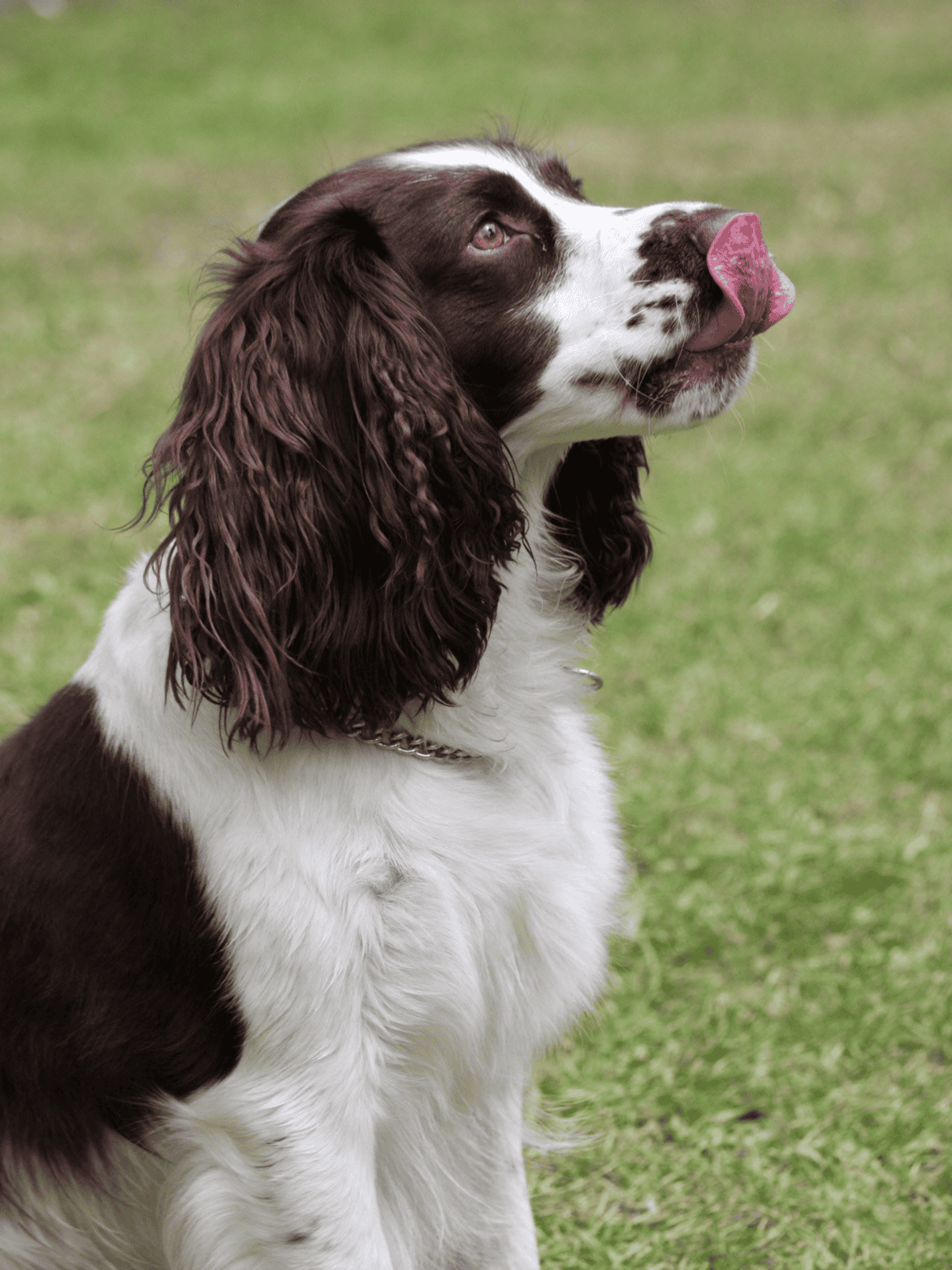
Though it might be odd to human eyes, dogs have their reasons for air licking. This behavior can reveal different things about what a dog might be sensing or feeling. Understanding this can offer insights into a dog’s communication and needs.
Canine Behavior Explained
Dogs lick the air for different reasons, often related to communication and seeking attention. Understanding these behaviors can help dog owners respond appropriately.
Communication Signaling
Dogs use licking as a form of communication. Licking the air might indicate that they are trying to express something. For example, dogs often lick when they feel anxious or excited. An anxious pet might lick the air if they encounter a new environment or meet new people.
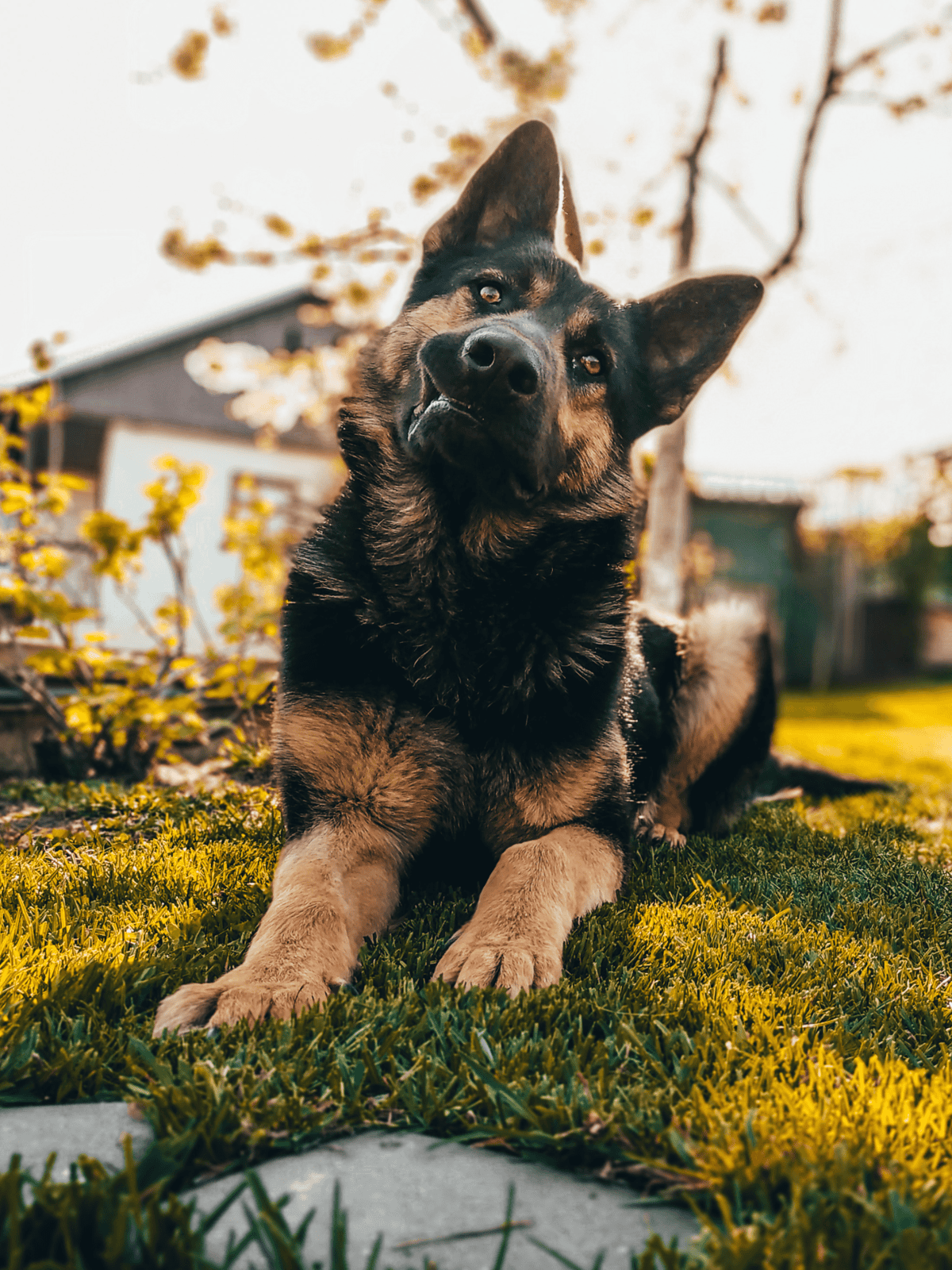
Beyond anxiety, a dog might lick the air if they are feeling uncomfortable. They might also do it to show a friendly greeting or acknowledgment. This can be a subtle way to indicate that they are calm and non-aggressive. It is important to observe what triggers air licking to understand what the dog is trying to convey.
Attention-Seeking Actions
Dogs often lick the air to attract attention from their humans. If a dog feels neglected or wants interaction, they may start licking as a way to get noticed. This behavior can be reinforced if the owner responds to it with care or playtime.
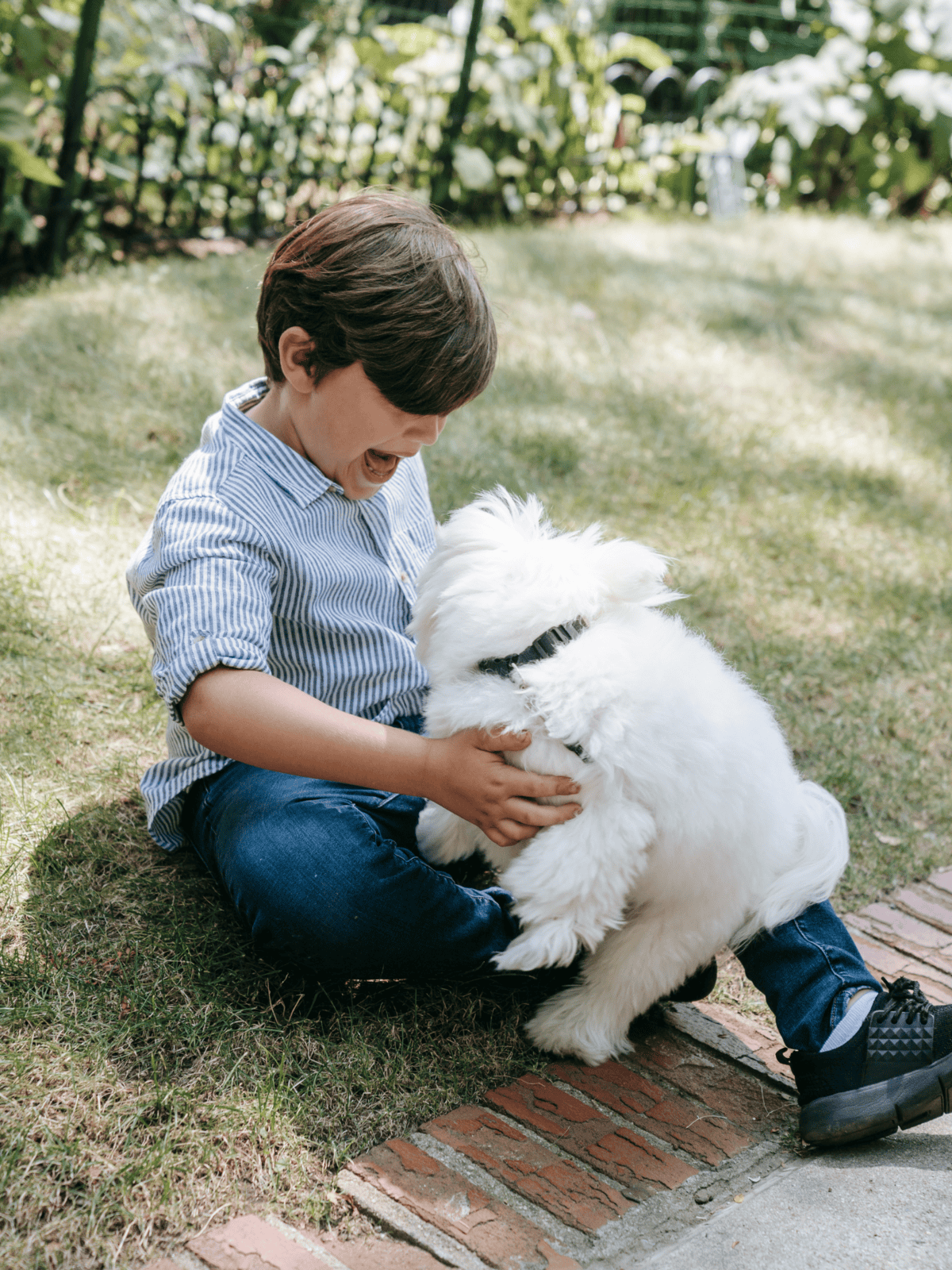
Licking can also indicate boredom. Dogs that don’t get enough mental or physical activities may start licking the air as a distraction. Providing toys, exercise, and interaction can reduce this behavior. Owners should note the frequency and context to determine if the dog simply seeks attention or if something more is wrong.
Is It Common for Dogs to Lick the Air?
Dogs might lick the air due to several reasons. It helps them smell things more clearly. Licking can also show that they feel nervous or have an upset stomach. Short and occasional air-licking is not typically worrisome.
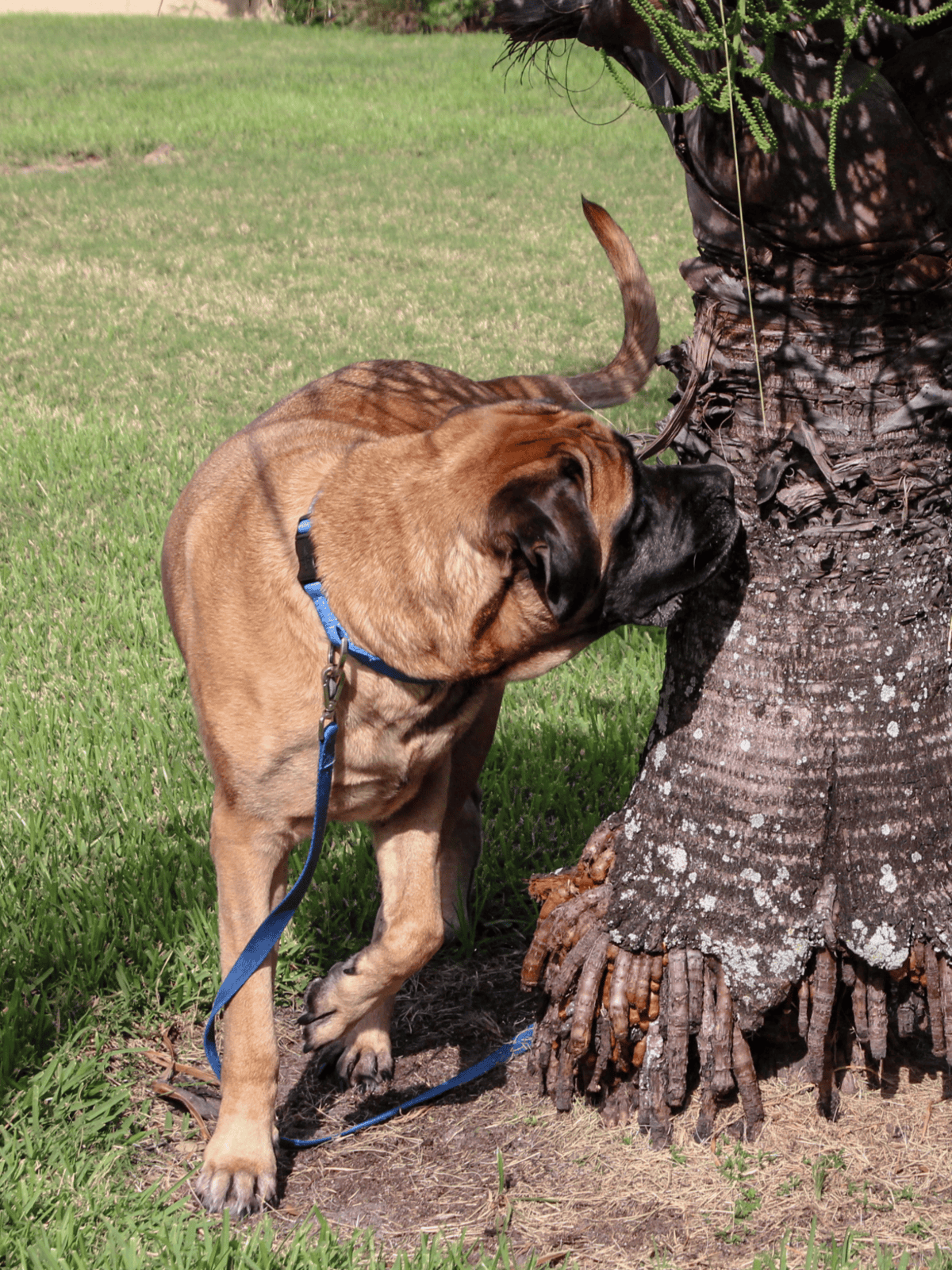
Pay attention if a dog starts licking the air more often or for longer periods. This change may need a closer look to ensure there isn’t an underlying issue. Such behavior is often normal, but it’s smart to keep an eye on any changes.
Enjoying this read?
We publish this content for free to generate interest in our Premium members' area. By subscribing, you can ask the writer any questions related to pet care and this article, get access to 100+ Premium Pet Care Guides and go Ad-Free with DogFix Premium for $2.99.
Interpreting Dog Licks
Dogs lick the air for different reasons ranging from showing affection to seeking comfort. Observing the context and frequency of these behaviors can provide insights into their meaning.
Affectionate Gestures
Sometimes dogs lick the air as a sign of love or joy. They may do this when greeting their owners or during playtime. It is a way they express their excitement and happiness.
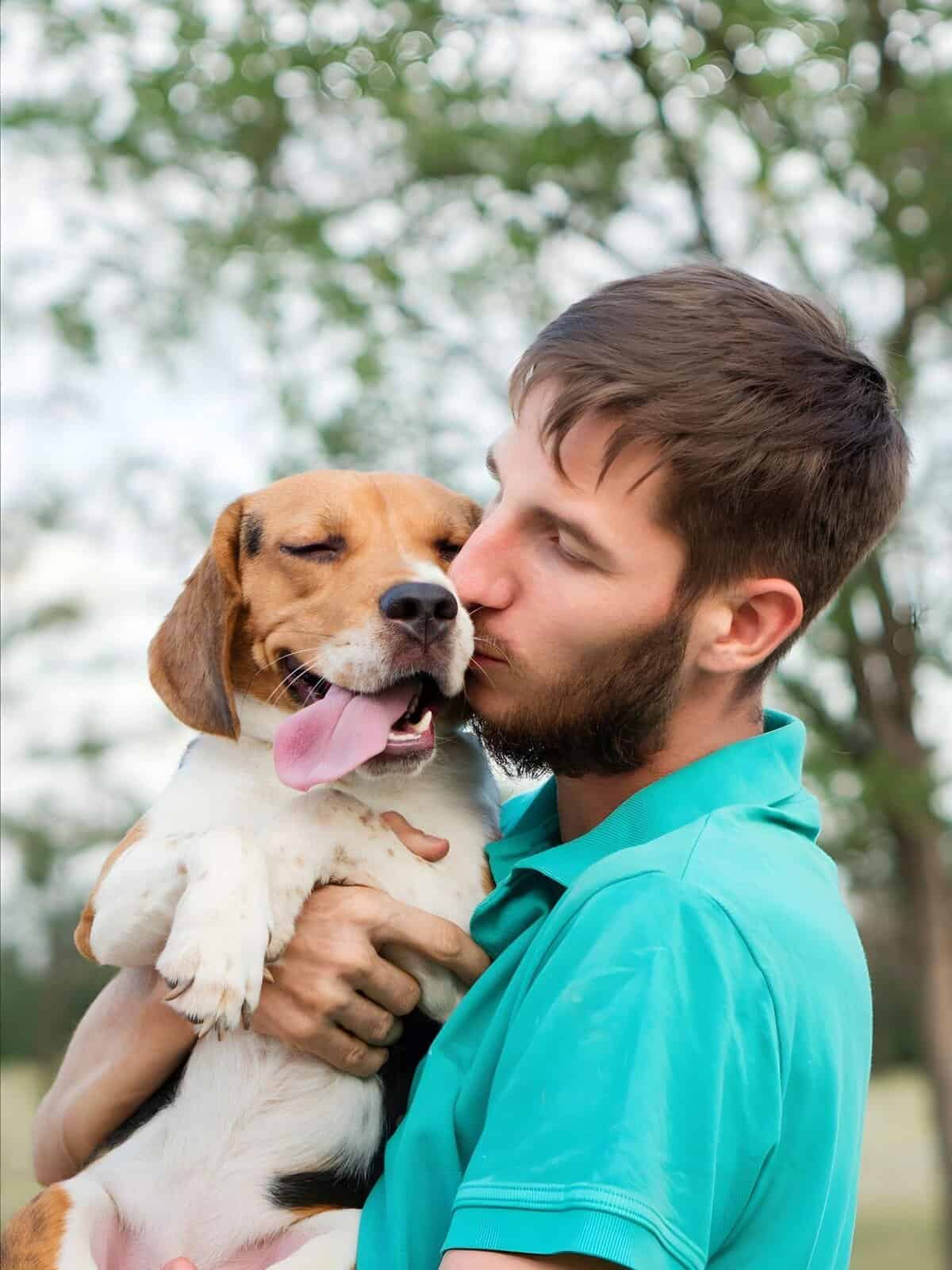
Licking can be compared to how humans smile or hug. Dogs often use this behavior to bond with people and other animals. These gestures are more frequent when dogs feel comfortable and secure.
It’s important to notice when these licks happen. If they occur during positive interactions, it’s likely a sign of contentment.
Learning from Patterns
Watching for patterns helps in understanding why a dog licks the air. If it happens often and around the same activity or time of day, there might be a specific trigger.
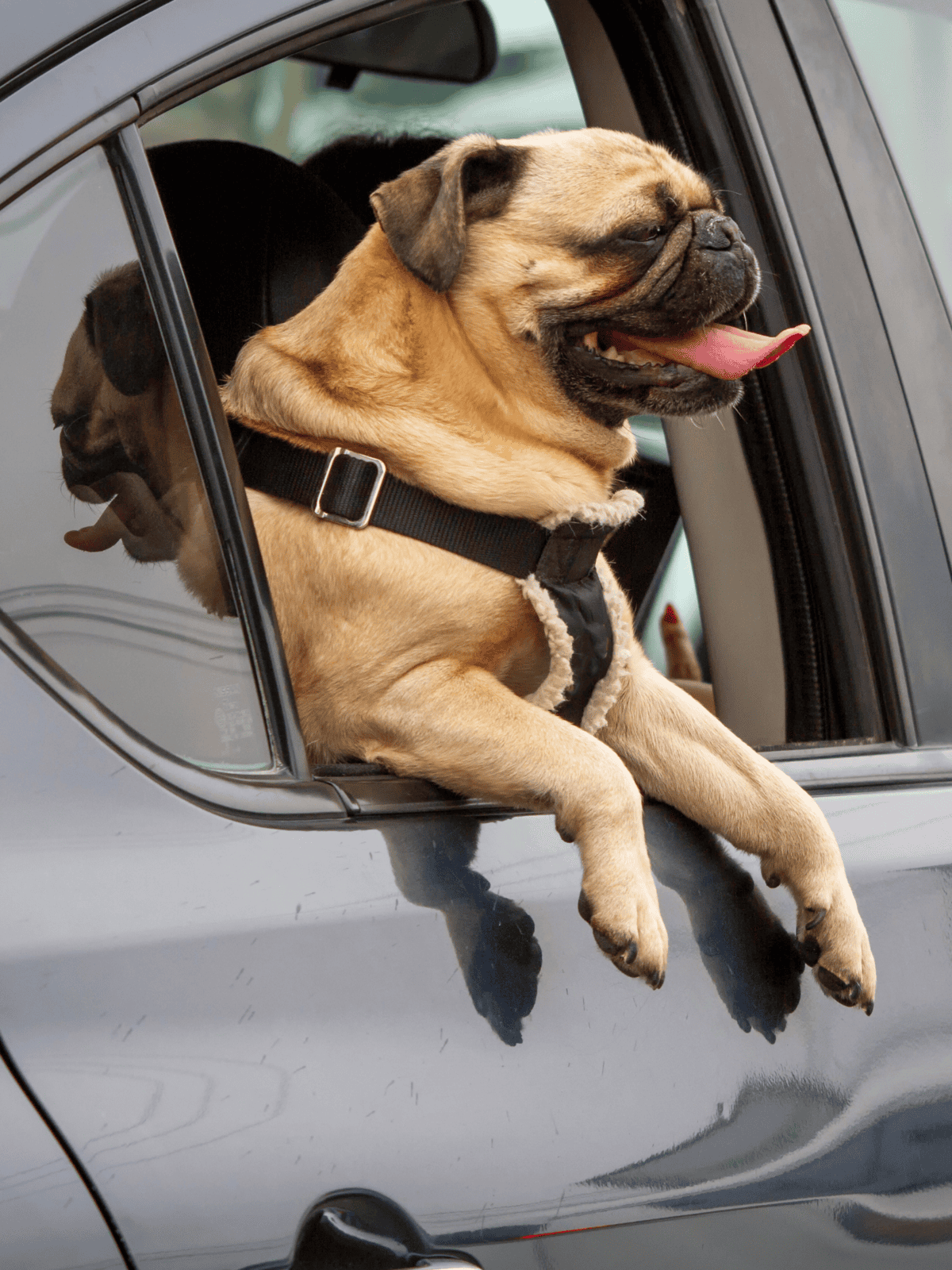
For example, some dogs lick more when they are nervous or anxious. These actions might increase during specific situations, like car rides or thunderstorms. Making note of these moments can show if licking indicates stress.
In other cases, licking might be linked to a medical issue. Allergies or discomfort can cause this behavior. Consulting a veterinarian can help determine if health concerns exist. Observing and recording patterns can provide crucial information for a diagnosis.
Reasons Dogs May Lick the Air
Dogs might lick the air for various reasons, ranging from physical to emotional causes. Understanding these can help address any underlying issues.
Enhancing Their Sense of Smell
Dogs have an incredible sense of smell that far surpasses humans, thanks to their millions of olfactory receptors. They possess a special organ in their nasal cavity called the vomeronasal organ, which enhances their ability to detect scents.
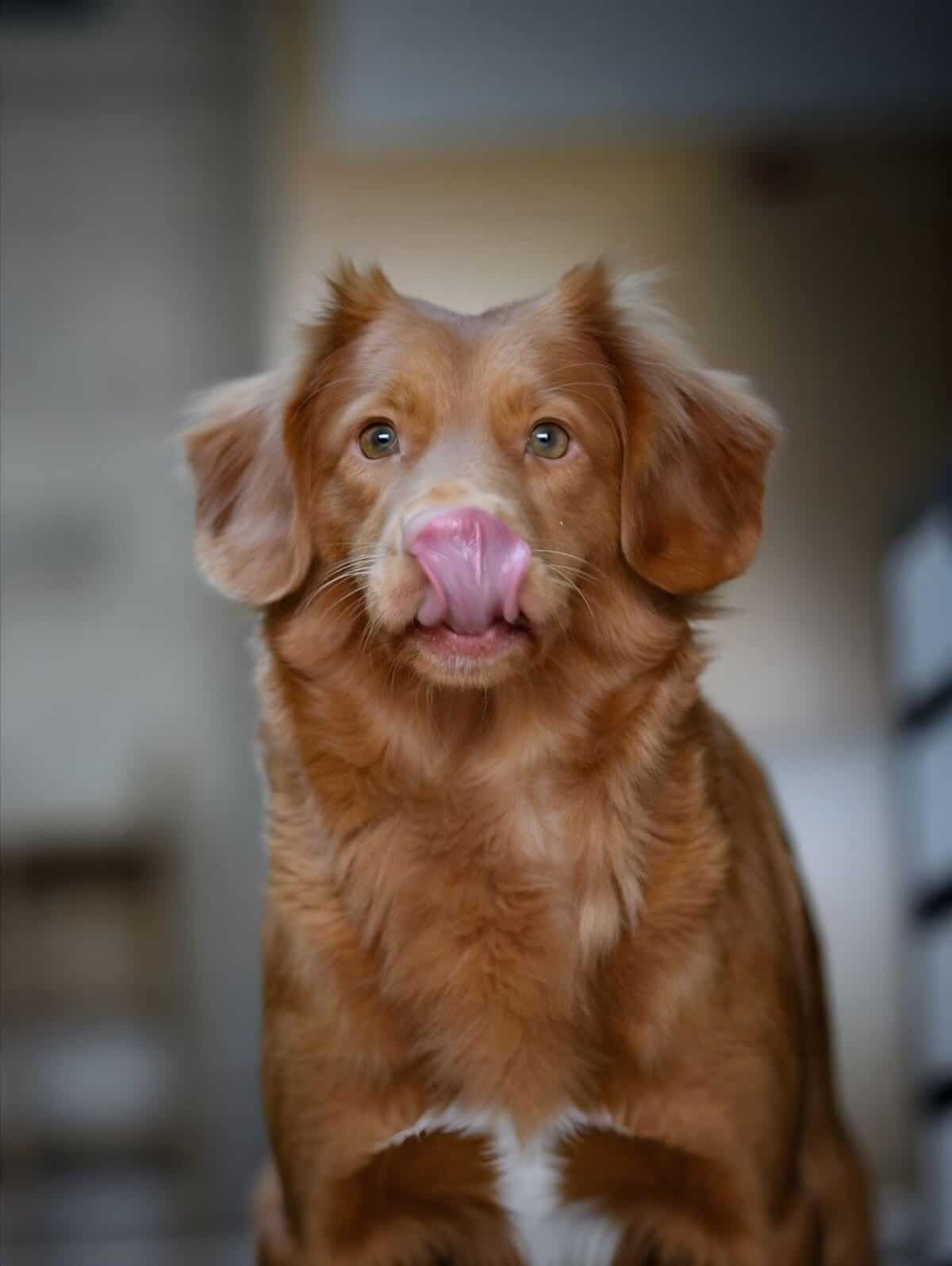
When dogs lick the air, it can help capture and direct scent molecules to this organ, giving them a better sense of the smells in their environment.
Feeling Stressed or Anxious
Dogs often use certain behaviors to indicate submission or appeasement in stressful situations. Licking the air is one such behavior that may occur when a dog feels anxious or stressed.
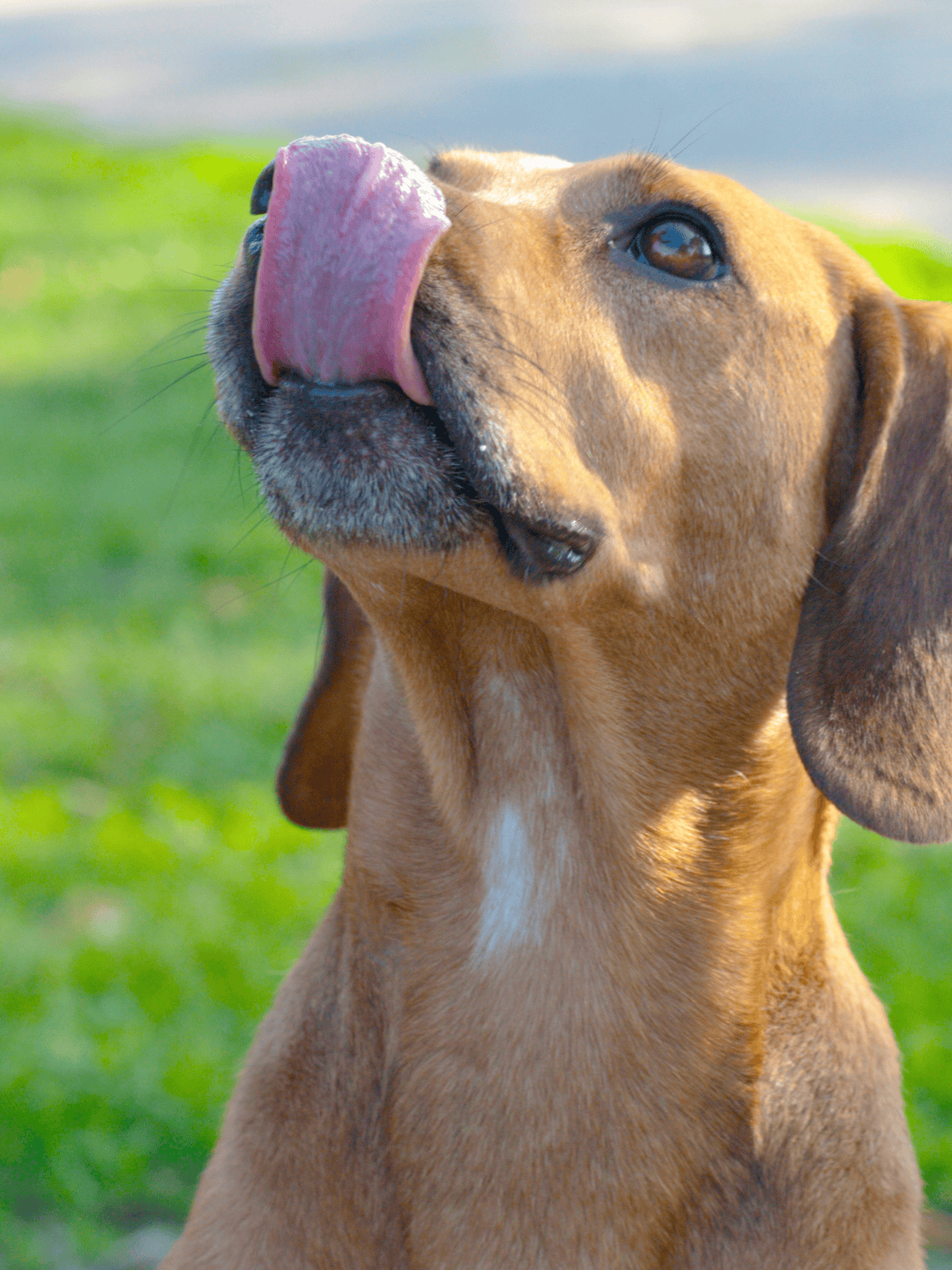
For example, when an owner speaks sternly or a dominant dog approaches, a dog might respond with this action. Reducing stressors and using calming communication can sometimes ease this anxiety.
Issues with Teeth or Mouth Pain
Dental problems such as loose or painful teeth can cause dogs to lick the air. This might be their way of trying to ease discomfort or adjust their bite.
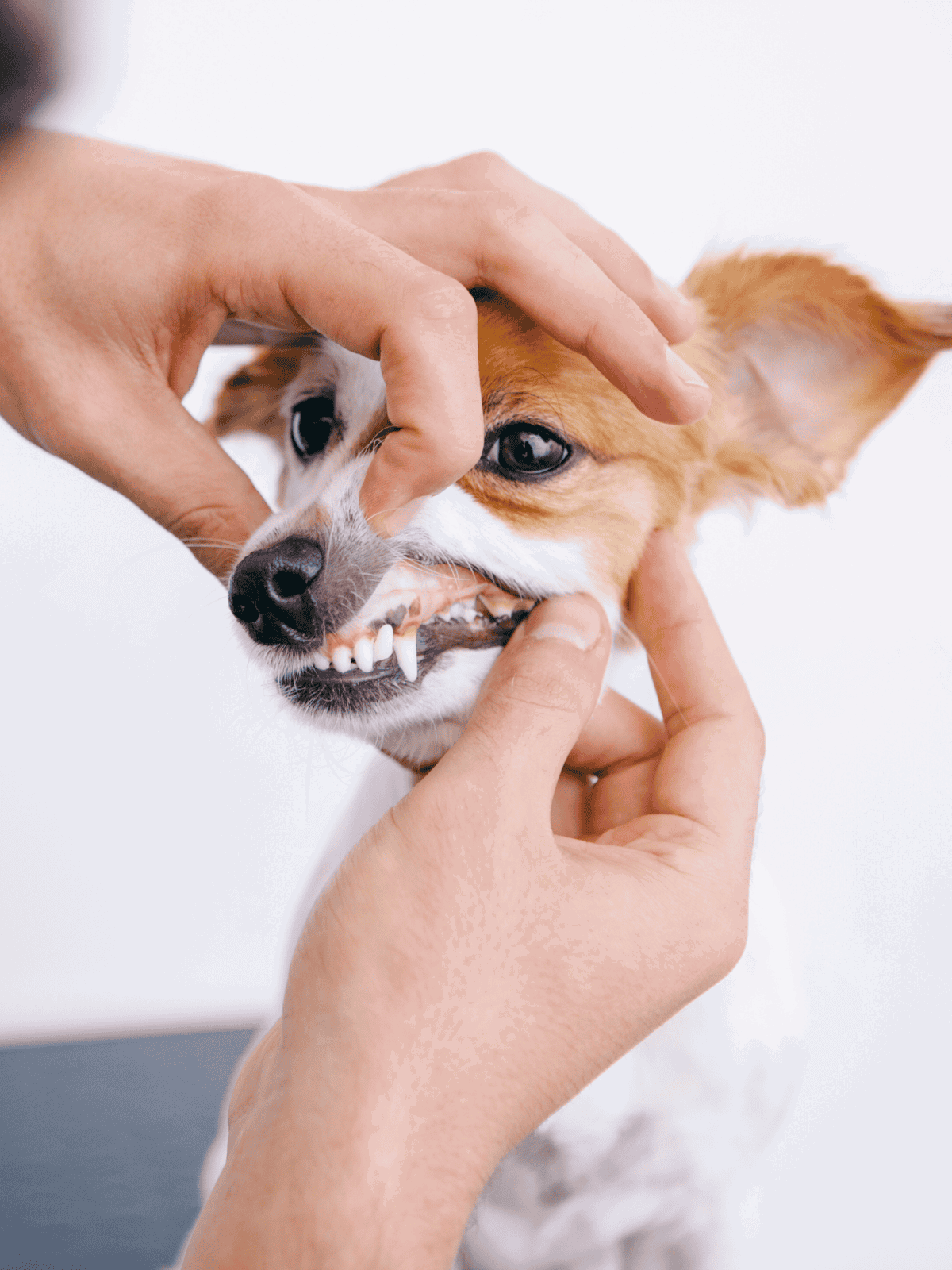
Regular dental check-ups are important to ensure a dog’s teeth and gums are healthy. Signs like bad breath, drooling, or trouble with food can indicate dental issues.
Object Stuck in the Mouth
Just like humans use their tongues to remove food stuck in teeth, dogs may lick the air when they have something caught in their mouth, such as food or other debris.
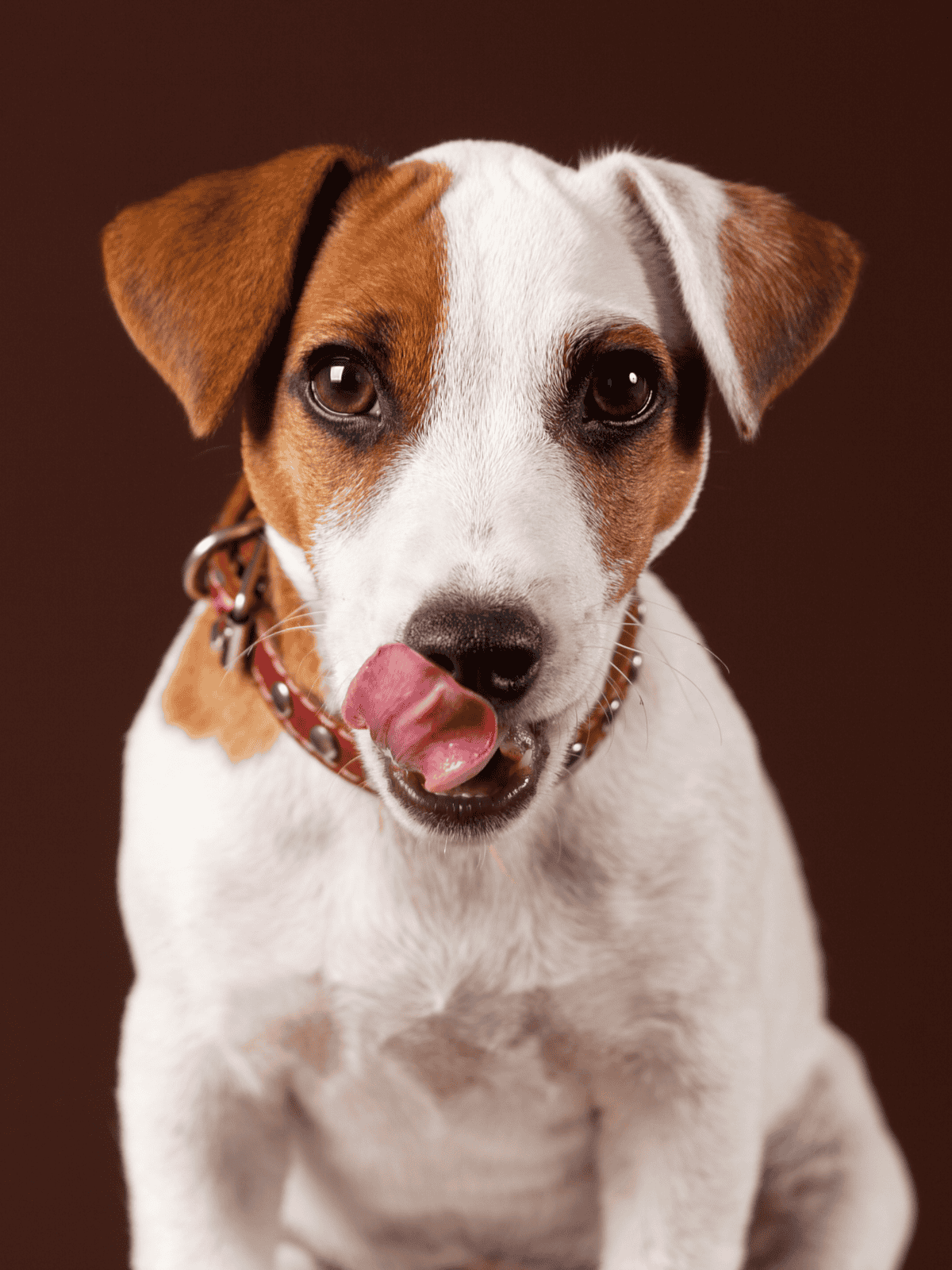
Checking for and removing any lodged objects can help stop this behavior. Owners should monitor what their dogs chew to prevent injuries or blockages.
Digestive System Concerns
Air licking in dogs might be linked to gastrointestinal issues such as nausea. If a dog is experiencing nausea due to a medical condition, they might turn to air licking as a symptom.
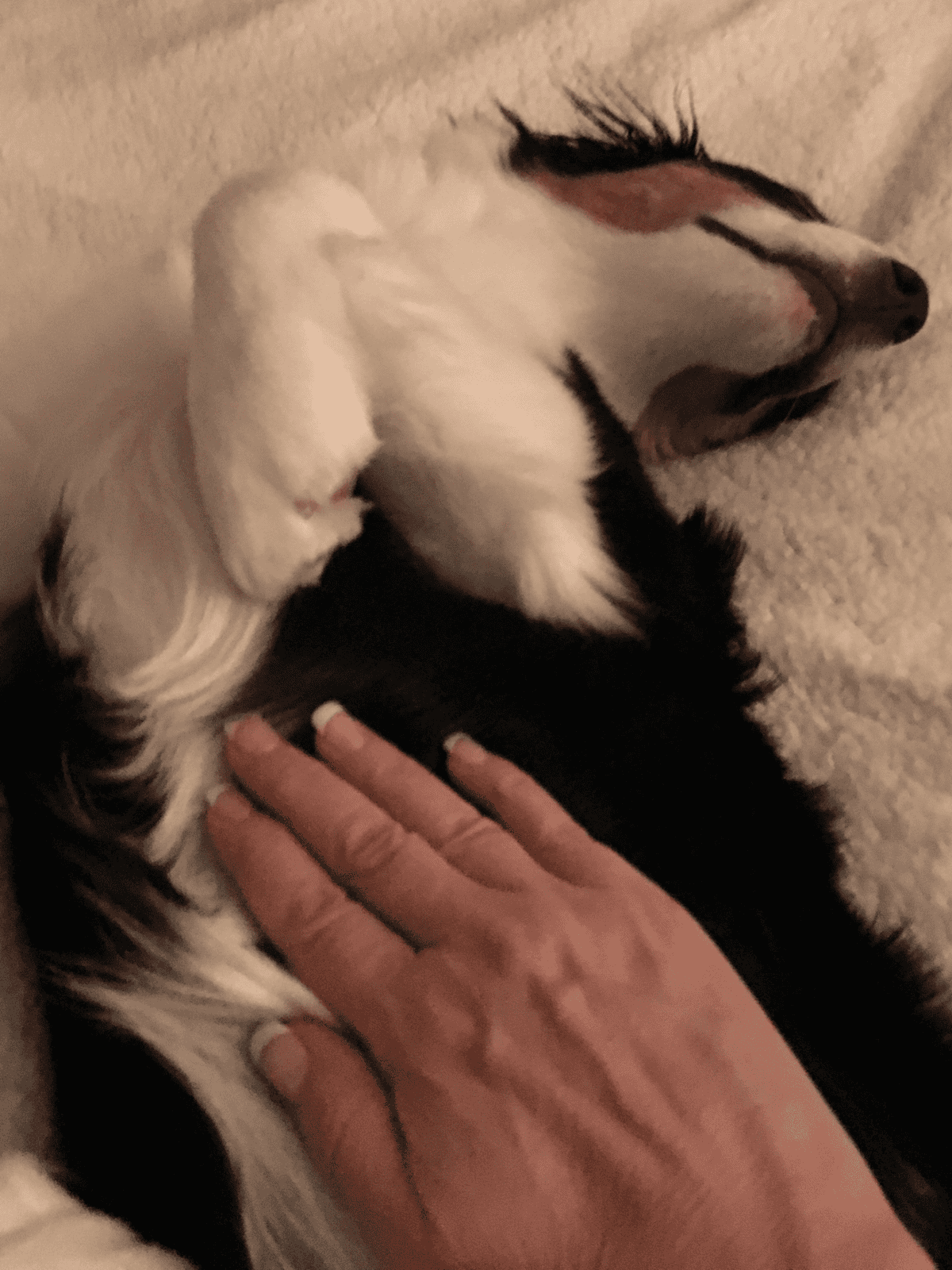
An upset stomach could also be due to food sensitivity or more serious conditions like pancreatitis. Consulting a veterinarian can help in diagnosing and treating these issues effectively.
Skin-Related Problems
Itchy skin or parasites like fleas often lead dogs to lick, scratch, or bite at themselves. Sometimes, if they can’t reach the itchy area or have been corrected for licking themselves, they might resort to air licking.
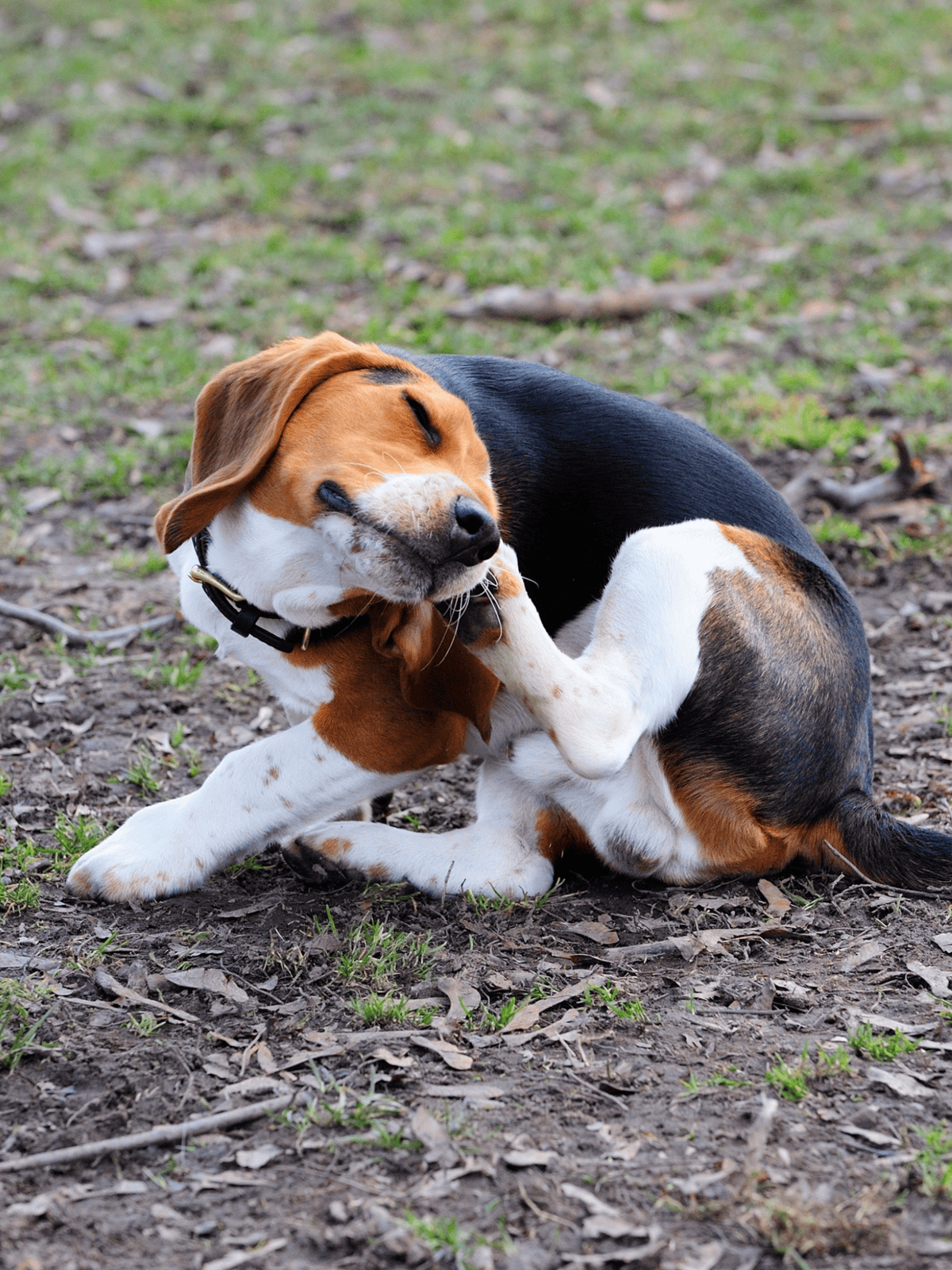
Treating skin itchiness might involve flea control, dietary changes, or supplements. Veterinary advice can help identify and treat the underlying causes of itching.
Developing Compulsions
If initially triggered by stress, air licking might develop into a compulsive behavior. Once ingrained, dogs might find it difficult to stop on their own.
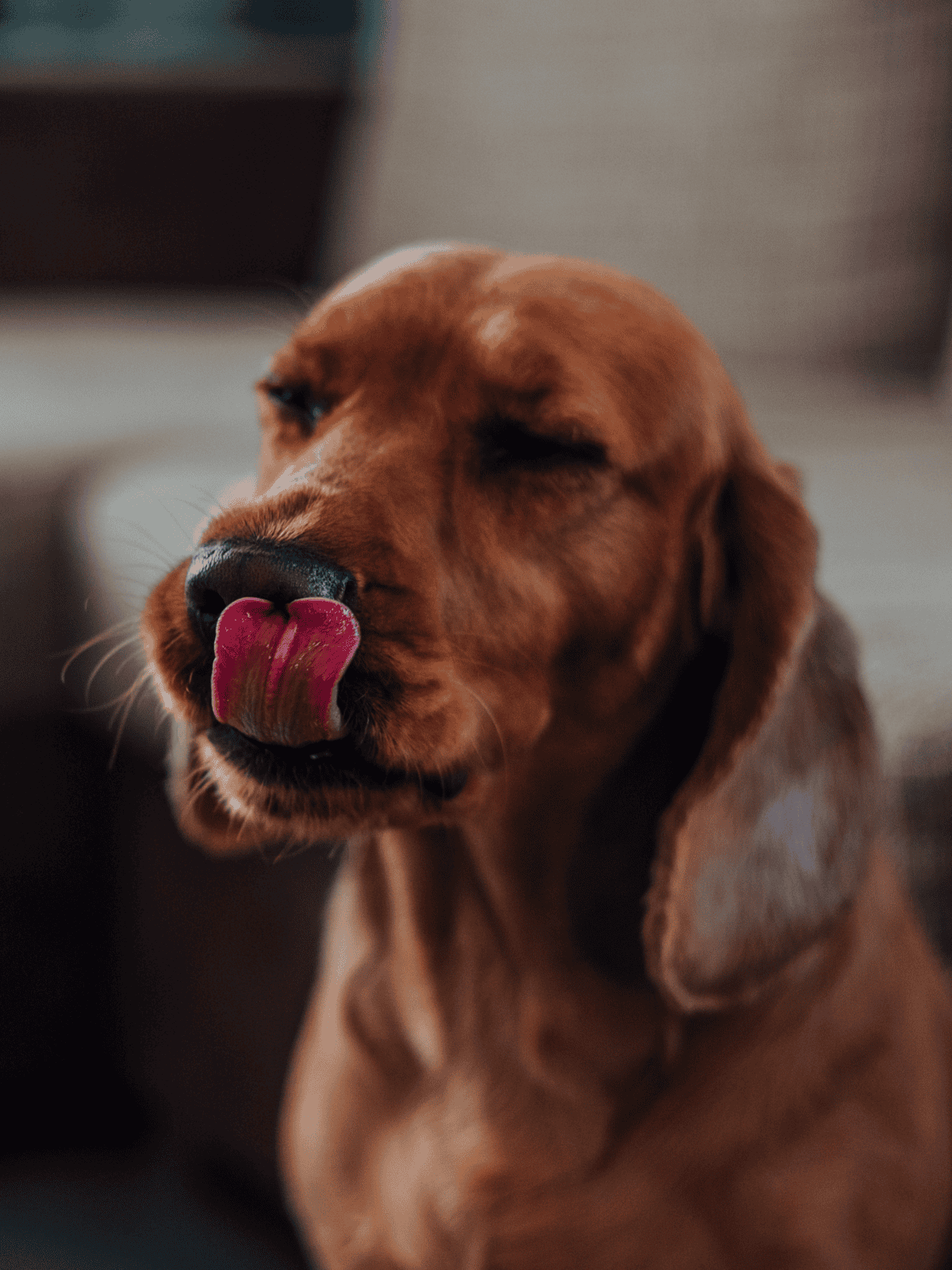
Intervention may be necessary to help manage this behavior and determine if other treatments are required. A veterinarian can offer guidance on how to handle compulsive tendencies.
Aging and Cognitive Decline
As dogs age, some may experience changes in behavior or symptoms similar to Alzheimer’s in humans, known as canine cognitive dysfunction. Repetitive actions like air licking can be a sign of this condition.
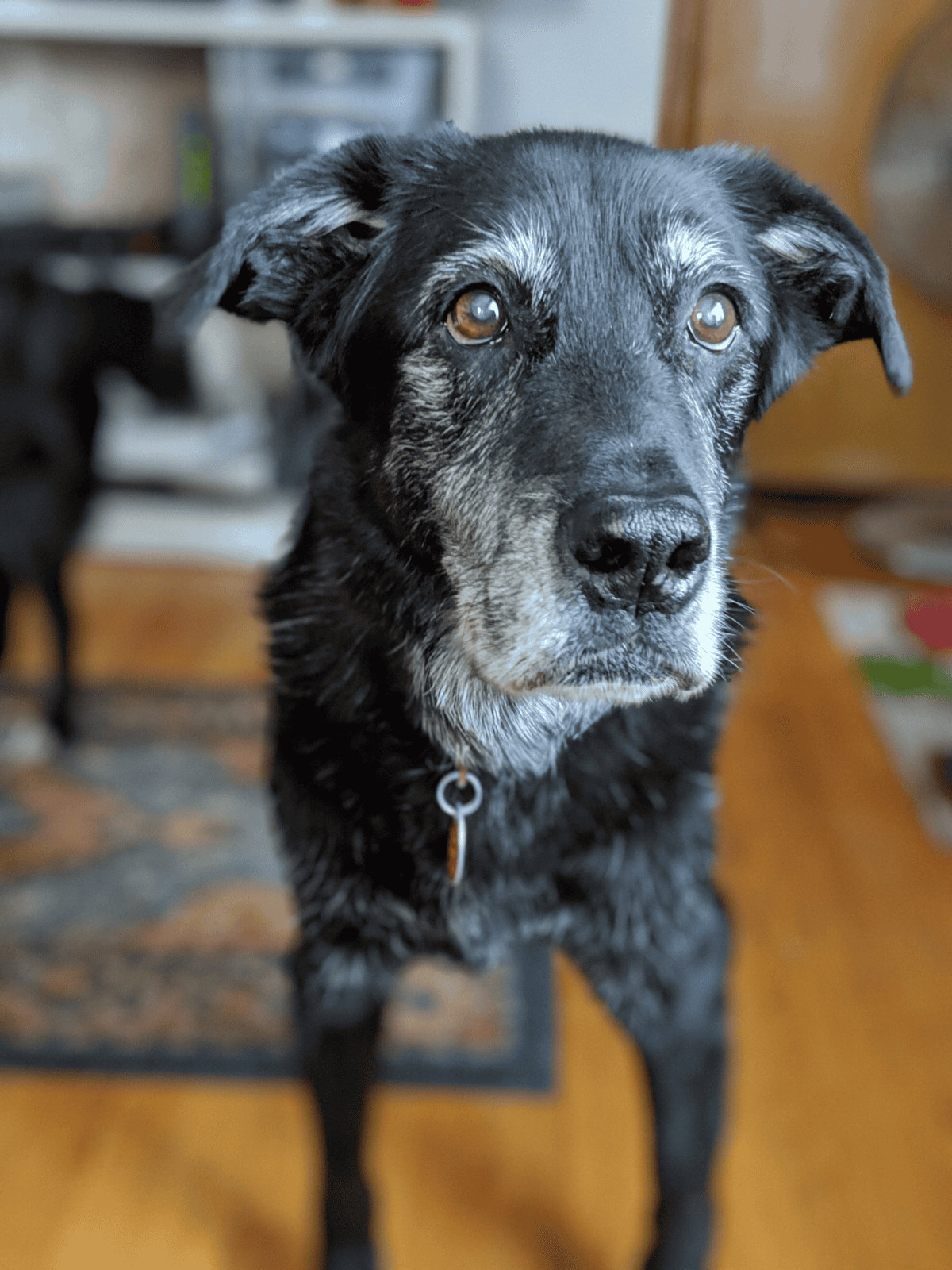
Dogs showing such symptoms might benefit from veterinary evaluation, which may lead to treatments that can improve quality of life.
Training and Management
Helping a dog that licks the air involves redirecting its behavior and seeking professional help if needed. These steps can make it easier to handle this habit.
Redirecting Behaviors
When a dog starts licking the air, it’s important to distract it with a command or a toy. A simple command like “sit” or “stay” can work well. This way, the dog focuses on something else and not the air licking.
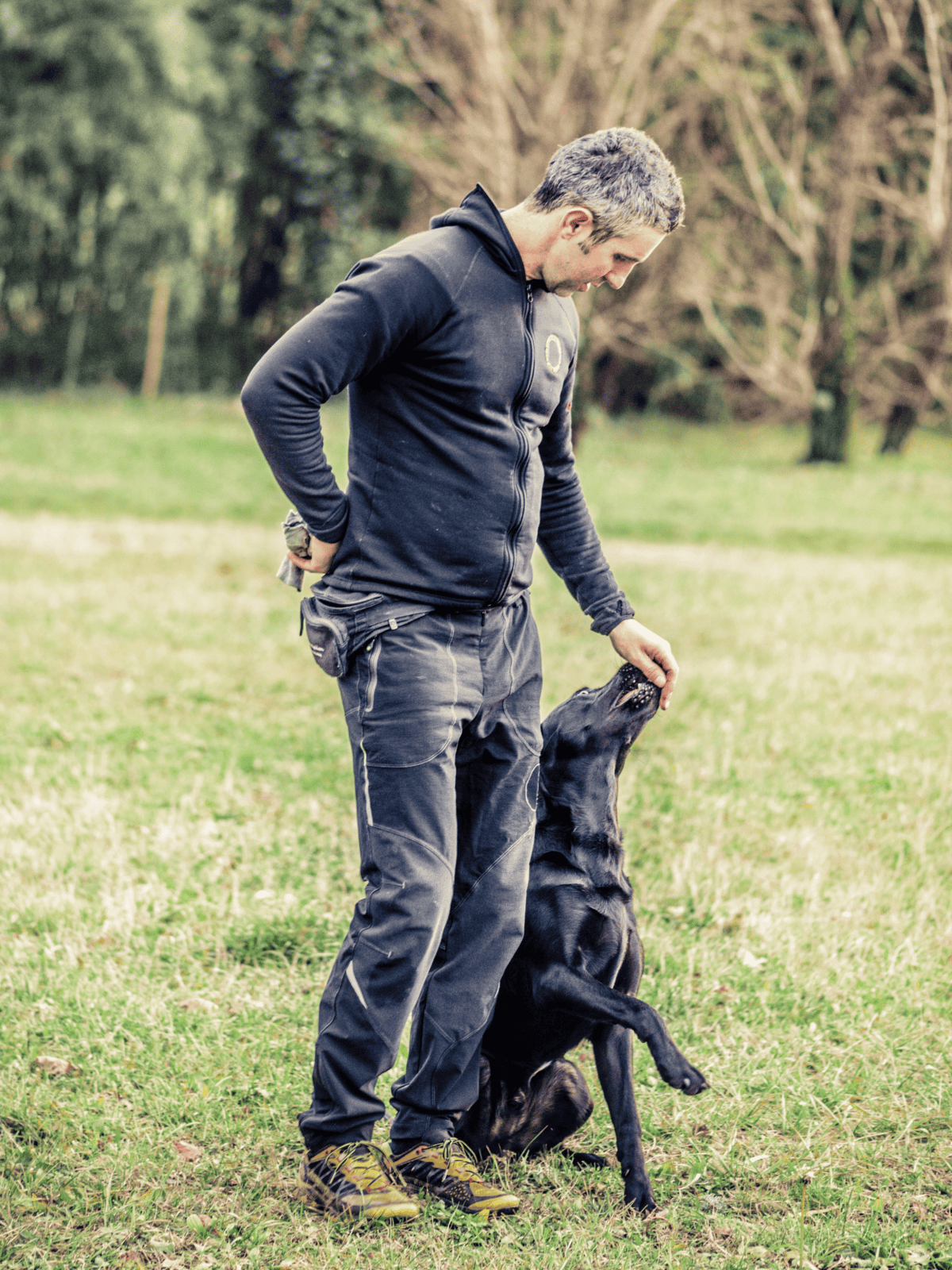
Using treats can also be effective. Rewarding a dog for stopping the behavior can help reinforce good habits.
Keeping a dog engaged with activities like walks or playtime reduces boredom. A bored dog might lick the air to entertain itself. Regular exercise and mental challenges, such as puzzle toys, can keep a dog busy and less likely to start a bad habit.
Professional Training Advice
Sometimes, expert help is needed for air-licking behavior. A professional dog trainer has the knowledge to understand more about this habit. They can provide tailored advice based on the dog’s specific needs.
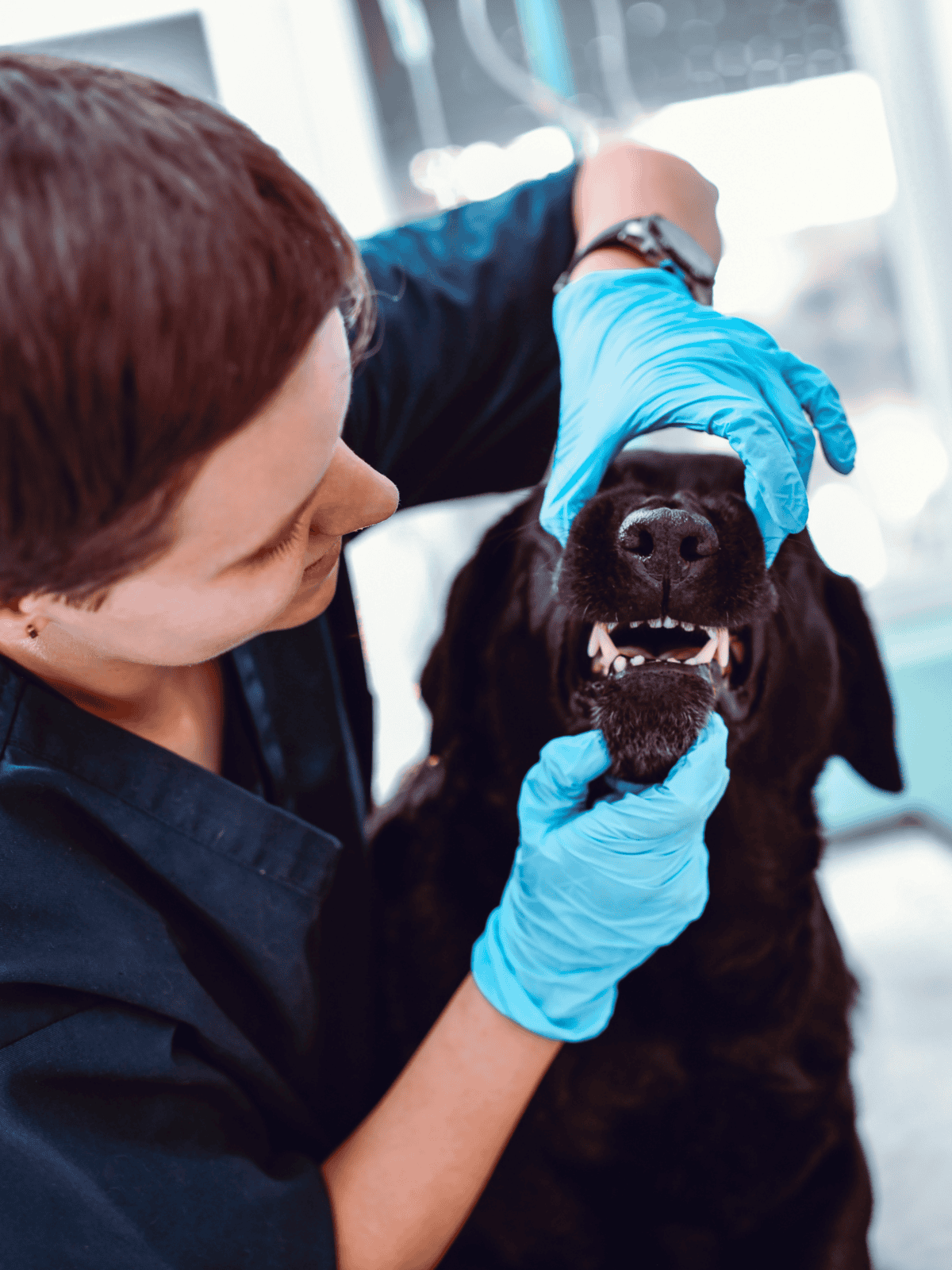
Veterinarians can check for any health issues linked to air licking. Conditions such as nausea, dental problems, or even anxiety might be reasons a dog licks the air. Getting a clear diagnosis ensures the right approach for managing the behavior.
For persistent habits, consider behavioral therapy. Trainers specializing in canine behavior can work with the dog on reducing stress and anxiety. They use positive reinforcement techniques to promote alternative actions.
When Should You Be Concerned About a Dog Licking the Air?
A dog persistently licking the air can be a sign of something more serious. It’s important to see a veterinarian if the behavior is obsessive or lasts for extended periods. There could be medical or behavioral issues needing attention.

Record the behavior and take videos of your dog both at home and while you’re away. Notice if the licking happens only when others are around. Inform your vet about your dog’s exercise, play, and interaction levels. Mention any training attempted to address the licking. If the dog also bites the air or shows facial or body twitches, record this, too.
Seeing a vet is a must if this behavior suggests a potential seizure. A focus on compulsive licking might be needed. Treatment can include medication, changes in environment, stress reduction, and specialized training. Air licking could be linked to seizures. Videos help vets assess this possibility. They might prescribe anti-seizure medication or suggest visiting a veterinary neurologist.
